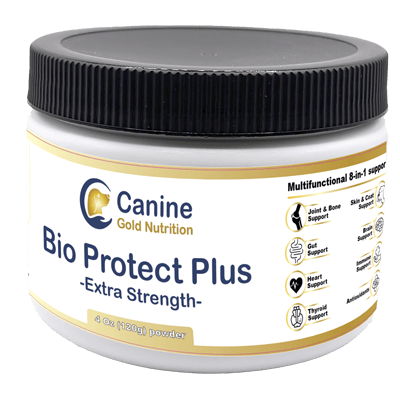Introduction
Dogs hold a special place in our hearts, and as responsible pet owners, ensuring their well-being is a top priority. One common challenge faced by many dog owners is dealing with sensitive stomachs in their furry companions. In this article, we will delve into the art of providing the perfect nutritional best foods for dogs with sensitive stomachs.

Table of Contents
Identifying Sensitivity
Our canine friends can’t communicate their discomfort verbally, but they do express it through various signs and symptoms. Vomiting, diarrhea, excessive gas, and reluctance to eat are all red flags indicating a sensitive stomach. However, it’s crucial to consult a veterinarian for a precise diagnosis before making any dietary changes.
Choosing the Best Foods for Dogs With Sensitive Stomachs
Selecting the right dog food is the first step in crafting a diet tailored for sensitive stomachs. Specialized dog food formulas designed for digestive health often feature easily digestible ingredients. Reading and understanding labels become imperative, with a focus on identifying potential allergens. If we fail to find the best food for dogs with sensitive stomach, don’t you believe that it will ultimately gonna trouble ourselves.
Protein Sources
Protein plays a pivotal role in a dog’s diet, especially for those with sensitive stomachs. Opting for high-quality protein sources, such as lean meats and fish, can contribute to a healthier digestive system. Understanding the specific protein needs of your dog’s breed and size is crucial for crafting an optimal diet thus choosing the best food for sensitivity of your dog.

Limited Ingredient Diets
For dogs with sensitive stomachs, simplicity is key. Limited ingredient diets, containing a minimal number of carefully selected components, can help reduce the risk of triggering digestive issues. Common allergens like wheat, soy, and dairy are often excluded from such formulations.
Grain-Free vs. Grain-Inclusive
The debate over grain-free diets has been ongoing, with misconceptions clouding the topic. Contrary to popular belief, grains can be a valuable part of a dog’s diet, providing essential nutrients. It’s essential to dispel myths and understand the role grains play in promoting digestive health.
Nutritional Supplements
In addition to a well-balanced diet, nutritional supplements can further support a dog’s digestive system. Probiotics, known for their positive impact on gut health, can be introduced to enhance the overall well-being of dogs with sensitive stomachs.
Homemade Diets
While commercial dog food is formulated to meet nutritional standards, some pet owners prefer preparing homemade meals. However, it’s crucial to approach this with caution, ensuring the diet is well-balanced and meets the specific needs of a dog with a sensitive stomach. Now that we’ve explored the intricacies of choosing the right commercial dog food, let’s delve into the world of homemade recipes crafted specifically for dogs with sensitive stomachs. Before we jump into the recipes, let’s understand why homemade dog food can be a game-changer.

Homemade meals allow you to have complete control over the ingredients, ensuring that your dog’s dietary needs are met without any unnecessary additives.
Recipe 1: Chicken and Rice Delight
Ingredients:
- 2 cups of cooked chicken (shredded) • 1 cup of cooked white rice • 1/2 cup of carrots (steamed and chopped) • 1/4 cup of peas (cooked)
Instructions
- In a mixing bowl, combine the shredded chicken, cooked rice, steamed carrots, and peas. 2. Mix the ingredients thoroughly to ensure an even distribution. 3. Serve a portion appropriate for your dog’s size.
Recipe 2: Turkey and Sweet Potato Medley
Ingredients:
2 cups of cooked turkey (ground) • 1 cup of cooked sweet potatoes (mashed) • 1/4 cup of green beans (steamed and chopped) • 1 tablespoon of olive oil
Instructions:
In a large bowl, mix the ground turkey, mashed sweet potatoes, chopped green beans, and olive oil. 2. Stir until all ingredients are well combined. 3. Serve a suitable portion based on your dog’s size
Transitioning to the Best foods for dogs with sensitive stomachs
Abrupt dietary changes may lead to digestive upset in dogs. A gradual transition, over the course of a week or more, allows the digestive system to adapt to the new food. Monitoring the dog’s response during this period is essential for making any necessary adjustments. Transitioning your dog to homemade meals should be done gradually to avoid digestive upsets.
Follow these steps:
- Mixing Ratio: Start by mixing a small amount of homemade food with your dog’s regular food. Over a week, gradually increase the ratio of homemade food.
- Monitor Behavior: Keep a close eye on your dog’s behavior, stool consistency, and overall health during the transition.
- Consult with Your Vet: Before making any significant dietary changes, consult with your veterinarian. They can provide personalized advice based on your dog’s specific needs.
Hydration Matters
Proper hydration is often overlooked but is a crucial aspect of a dog’s overall health, especially for those with sensitive stomachs. Encouraging water intake through wet food, water bowls, and even adding water to dry kibble can contribute to digestive well-being.
Monitoring and Adjusting
Regular veterinary check-ups are essential for monitoring a dog’s health and making necessary adjustments to the diet. As dogs age or if health conditions change, adapting their nutritional intake becomes imperative for their overall well-being.
Dealing with Food Allergies of Dogs
Picking the best food for your dog having sensitive stomach becomes tricky as your friend may suffer food Allery. Food allergies can exacerbate digestive issues. Identifying and managing these allergies often involves an elimination diet under the guidance of a veterinarian. Pinpointing the specific allergen allows for a more precise and tailored diet.When suspecting a food allergy, seeking professional guidance is paramount. Veterinarians utilize several methods to diagnose food allergies in dogs, employing a combination of clinical observations and specialized tests. These methods include:
1. Elimination Diets:
Elimination diets are a cornerstone in diagnosing food allergies. In this process, the veterinarian prescribes a carefully curated, hypoallergenic diet that excludes common allergens such as beef, chicken, dairy, and grains. The dog is fed only this specialized diet for a set period, usually around 8 to 12 weeks. During this time, any improvement in the dog’s symptoms, such as reduced itching or digestive issues, suggests a potential food allergy.
2. Blood Tests:
Blood tests, specifically serologic testing, can help identify allergen-specific antibodies in a dog’s blood. These tests detect the presence of immunoglobulin E (IgE) antibodies, which the immune system produces in response to allergens. While blood tests can provide insights into potential allergens, they are not always conclusive and are often used in conjunction with other diagnostic methods.
3. Skin Tests:
Skin tests involve introducing small amounts of suspected allergens to the dog’s skin and observing any allergic reactions. One common type of skin test is the intradermal test, where a small amount of allergen is injected just beneath the skin. If the dog is allergic to the substance, it will exhibit a visible reaction at the injection site. Skin tests are valuable for pinpointing specific allergens but may require sedation due to the potential discomfort for the dog.
A precise diagnosis is the first step towards effectively managing your dog’s food allergies. Once the allergens are identified, tailoring your dog’s diet becomes crucial. Opt for novel protein sources such as venison or duck, and consider grain-free options. Always consult your vet to ensure the new diet meets your dog’s nutritional needs.
Introducing Treats Responsibly
Treats are a delightful part of a dog’s life, but for those with sensitive stomachs, choosing treats wisely is crucial. Opting for treats that align with the dog’s dietary restrictions or even considering homemade options ensures that indulgences don’t compromise digestive health.
Balancing Texture and Consistency
Dogs, like humans, have preferences when it comes to food texture. Exploring different textures in dog food, from kibble to wet food, allows owners to find the optimal consistency that suits their dog’s sensitive stomach.
Conclusion
In the journey of unwrapping the perfect package of nutrition for dogs with sensitive stomachs, the key lies in understanding their unique needs. Tailoring a diet to address specific sensitivities, incorporating high-quality ingredients, and maintaining a balance of nutrients contribute to a healthier and happier canine companion.
Still confused what’s the best dog foods for dogs with sensitive stomach, check out our recommendation.
FAQs
- Can I switch my dog’s food abruptly if they have a sensitive stomach?
• Abrupt changes can lead to digestive upset. Gradual transitions are recommended to allow adaptation. - Are grain-free diets suitable for dogs with sensitive stomachs?
• Grains can be part of a balanced diet. Consulting your vet to determine the best approach for your dog will right thing to do. - How often should I monitor and adjust my dog’s diet?
• Regular
Still Concerned !!! Still worried about your canine!!!Still wondering what’s the best food for your dog with sensitive stomach?
Try our Recommendation which comes with 1 year money back guarantee.
If you’re seeking a premium supplement that goes beyond basic digestive support, Gold Nutrition is the answer. Trust me; your dog will thank you for it with wagging tails and boundless vitality. Invest in your pet’s well-being and choose Gold Nutrition for a happy, healthy, and thriving furry companion. Choose the gold standard in dog supplements – choose Gold Nutrition!



Thank you for every other informative website. Where else may just I am getting that kind of information written in such an ideal
approach? I’ve a challenge that I am just now working on, and I have been at the glance out for such info.
What’s Going down i’m new to this, I stumbled upon this I have discovered It positively helpful and it has aided me out loads.
I’m hoping to give a contribution & assist different users like its
aided me. Great job.
I was very pleased to find this great site. I wanted to thank you for
your time for this particularly wonderful read!!
I definitely loved every bit of it and I have you book-marked to
look at new things on your blog.
Good information. Lucky me I discovered your site by accident
(stumbleupon). I’ve book marked it for later!